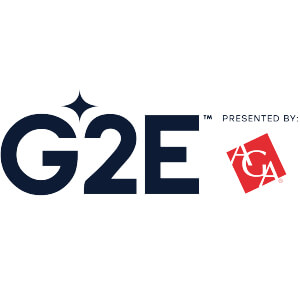Zona de Azar Brazil – Brazil: We Have Regulation of Sports Betting and Online Gambling
 Brazil.- 23th December 2023 www.zonadeazar.com After five years of waiting and endless negotiations, Brazil finally achieved the long-awaited and necessary regulation of sports betting this afternoon.
Brazil.- 23th December 2023 www.zonadeazar.com After five years of waiting and endless negotiations, Brazil finally achieved the long-awaited and necessary regulation of sports betting this afternoon.
The Chamber revoked the Senate’s prohibition, also allowing virtual games such as online casinos.
The text approved by the deputies maintained the subsidy at R$ 30 million for up to 3 brands per operator and a term of 5 years. The Plenary accepted the 12% GGR rate. The project now goes to presidential approval.
MYLAW_Updates -> here are the main aspects of the proposed new proposed rules, based on the compilation of the Final BL made independently by MYLAW team.
The official and definitive official wording is still pending edition and delivery by the Desk of the Chamber of Deputies.

The Brazilian iGaming sector is officially born with this approval. After negotiations, an agreement was reached, and the Chamber of Deputies overturned the Senate’s ban, allowing online gambling. Following the setback caused by changes to PL No. 3626/2023 in the Senate, which excluded online gambling, the Chamber revoked the decision, and bets on virtual events are now part of the approved legislation and will become law after presidential sanction.
In the Chamber, the subsidy value of a maximum of R$ 30 million was approved for up to three brands over a period of five years. Additionally, deputies maintained the 12% tax rate on companies in the sector (GGR). The project’s rapporteur reduced the tax rate on gross income from betting houses from 18% to 12% and established a 15% tax rate on winnings obtained by bettors.
The Chamber resumed the inclusion of online casinos in the regulation of virtual games, despite the protest of the evangelical caucus. This was the main change made by the senators, who approved, with opposition emphasis, the removal of the sector in the approved text.
According to technicians from the Ministry of Finance, if the project excluded casinos, revenues would be reduced by around 70%. The expectation is to collect 12 billion reais in 2024. The vote was a victory for the Lula government. Minister Fernando Haddad was in a hurry to complete the vote this year.
Late Thursday night (21), deputies approved the urgency to vote on the project. There were 307 votes in favor, 115 against, and one abstention. The proposal had already been approved by the Chamber in September. However, the Senate made changes to the content in a vote last week, and the project was reanalyzed by the deputies.
Bettors, as defined by the Senate, will pay 15% income tax on the net result of bets over a year, to be collected in the month following the calculation, provided it exceeds the value of the first progressive bracket of the Income Tax table (R$ 2,112.00).
Online games, within the framework of the approved project, can only be offered in a virtual environment. The installation of equipment in physical establishments intended for the sale of virtual sports betting will not be allowed.
The report foresees the collection of the monthly Inspection Fee due to the commercial exploitation of sports betting progressively based on the net income of the operator, as follows:
Taxes for companies and bettors
The sports betting regulation project is one of the proposals from the Ministry of Finance to increase revenue. For this purpose, it establishes the taxation of prizes and betting houses, exploitation fees, and rules for advertising in the sector.
Regarding taxation, initially, the government’s economic team established a rate of 18% for sports houses and up to 30% for winnings obtained by bettors.
In the Senate, the rate changed to 12% on the income of online betting companies. For those betting, the taxation, which will be 15%, will only apply to the profit obtained with the prize, minus the amount bet. The Chamber maintained these rates.
Players will only be charged once a year if the value of the prizes exceeds R$ 2,112, the exemption range of the Individual Income Tax (IRPF).
Other points
The text also states that the sports betting company will need government authorization to operate in the country. The betting house must be headquartered and incorporated in Brazil and have a Brazilian partner who owns at least 20% of the share capital.
The company must pay an operating license in Brazil, which can reach up to R$ 30 million and will be valid for five years.
Partners or the majority shareholder of the betting house cannot participate, directly or indirectly, in a Sociedade Anônima de Futebol (SAF) or Brazilian professional sports organization; be a manager of a Brazilian sports team or financial and payment institutions that process bets.
* Bets by minors and people who may influence the outcome are prohibited.
* The company must adopt identification or facial recognition technology to verify the bettor’s identity.
Division of resources
According to the text, the division of collected resources will be as follows:
* 36% for the Ministry of Sports and sports committees;
* 28% for Tourism;
* 13.6% for Public Security;
* 10% to the Ministry of Education;
* 10% for social security;
* 1% for health
* 0.5% for civil society entities
* 0.5% to the Fund for the Equipment and Operation of Basic Activities of the Federal Police (Funapol);
* 0.40% for the Brazilian Agency for Industrial Development.
Criteria for members
The Chamber maintained the requirements defined by the Senate for the opening of companies in the segment. Among them, having at least one Brazilian person as a partner who owns at least 20% of the legal entity’s share capital, and the betting house must be headquartered and incorporated in Brazil.
In addition, the partner or shareholder cannot have a direct or indirect stake in:
* SAF (Sociedade Anônima de Futebol) or Brazilian professional sports organization, nor act as a director of a Brazilian sports team;
* Financial and payment institutions processing fixed-odds bets.
License fee Bets will be operated by companies authorized by the Ministry of Finance, headquartered and managed in the national territory. They must demonstrate experience in games and other technical requirements set by the Executive.
In addition, companies must have a Brazilian member in their board who owns at least 20% of the share capital. The controlling shareholder cannot act directly or indirectly in a professional sports organization or be a director or affiliated with financial institutions processing bets.
Interested companies must pay up to R$ 30 million for the right to operate up to 3 trademarks for up to five years. The project requires companies to adopt practices to serve players, combat money laundering, promote responsible gambling, and prevent fraud and manipulation of bets.
This was another change made by the senators and accepted by the Chamber. In the proposal approved by the deputies in September, the same amount was foreseen, but for a single brand and for only three years.
Betting houses must adopt identification procedures. The goal is to verify the validity of the bettors’ identity, requiring the use of identification and facial recognition technology.
Fighting addiction
In the approved final report, the aspects previously defined by the Chamber and endorsed by the Senate regarding responsible gambling, sports integrity, and advertising were maintained, as well as the prohibition of bets by minors.
The approved project also continues with the Ministry of Finance’s responsibility to regulate the obligation of betting operators to develop systems to monitor customer activity.
The goal is to identify harm associated with gambling from the moment an account is opened. The text determines that Haddad’s ministry will be responsible for regulating the obligation of betting operators to develop systems to monitor customer activity.
The goal is to identify harm associated with gambling from the moment an account is opened. Some criteria were established:
* customer expenses;
* spending patterns;
* time spent playing;
* gambling behavior indicators;
* customer-initiated contact;
* use of gambling management tools.
Frauds
The approved proposal authorizes the suspension of payments for bets investigated for match-fixing. It also requires companies to verify the identity of bettors through facial recognition technology.
Operators must monitor customer activities to identify possible harm or abuse. Platforms will also be required to develop time-limiting features for users.
Banned players will be prevented from playing, among others:
* Minors under 18 years of age;
* individuals diagnosed with gambling disorders;
* individuals with influence over sporting events or the gaming platform;
* sports directors, coaches, referees, agents, and athletes.
Advertising
Communication and advertising actions for lottery bets, carried out by operating agents, must include discouraging warnings about gambling and warnings about its harm, in addition to observing restrictions on schedules and broadcast channels.
Advertising that presents gambling as socially attractive or contains statements from well-known personalities suggesting that gambling contributes to social or personal success will be prohibited.
Edited by: @MaiaDigital www.zonadeazar.com











































